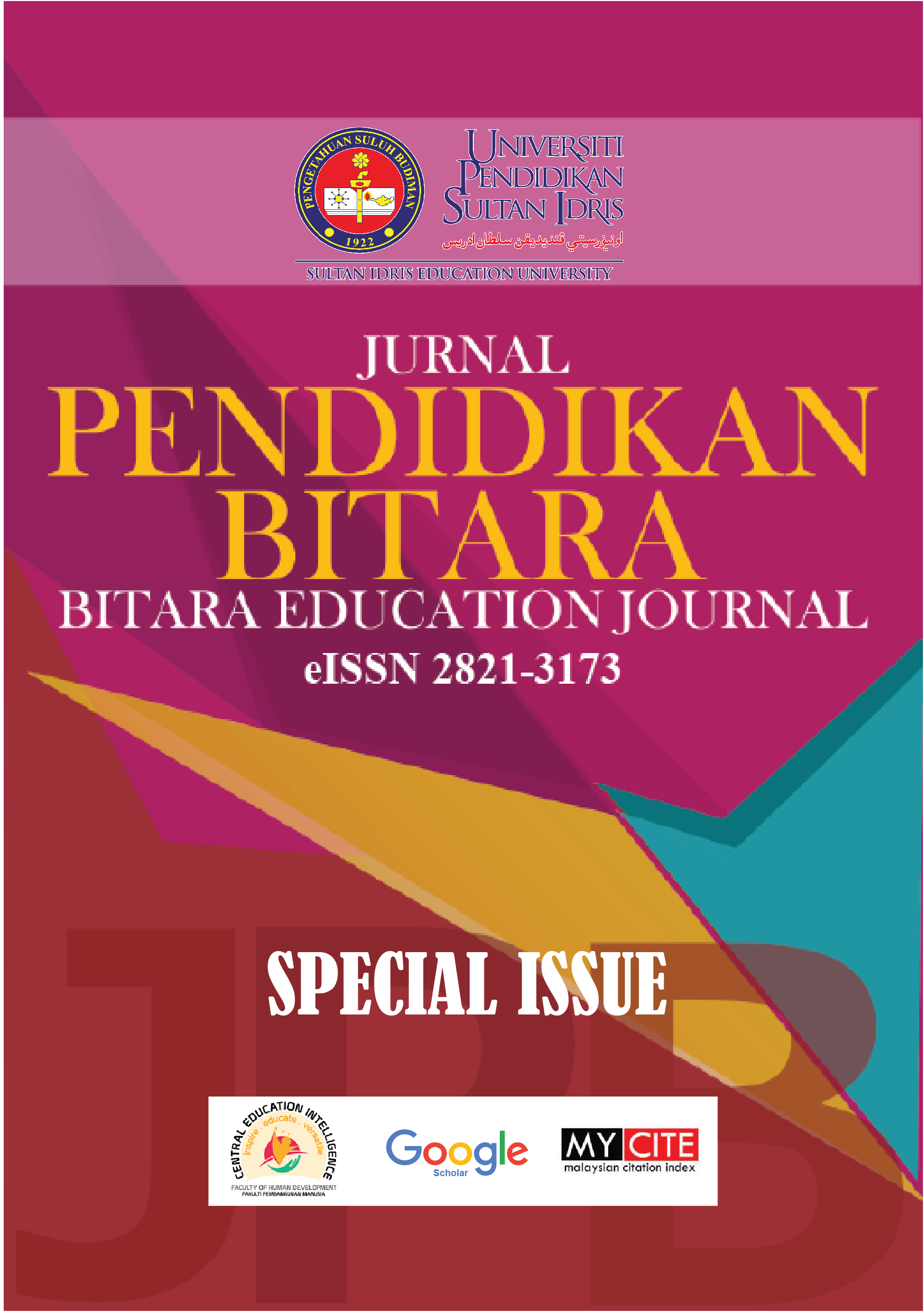Enhancing Emotional Regulation in Children with Autism Through Theory of Mind
DOI:
https://doi.org/10.37134/bitara.vol17.sp2.15.2024Keywords:
Theory of Mind, emotional regulation, autism, children, interventionAbstract
This review paper explores the impact of Theory of Mind (ToM) on emotional regulation in children with autism spectrum disorder (ASD). This literature review examines existing research on the interplay between Theory of Mind (ToM) and emotional regulation in children with autism spectrum disorder (ASD). Theory of Mind refers to the cognitive capacity to understand and predict others' mental states, a skill often deficient in individuals with ASD. This deficiency can contribute to difficulties in social interactions and emotional regulation. The review synthesizes findings from various studies by using Scopus AI that investigate the role of ToM in emotional processing and regulation among children with autism. It explores how impaired ToM impacts the recognition, understanding, and management of emotions in this population. Additionally, the review highlights interventions aimed at enhancing ToM and their subsequent effects on emotional regulation. The synthesis of these studies reveals that targeted ToM interventions can lead to significant improvements in emotional regulation, suggesting a critical link between cognitive understanding of others' perspectives and the ability to manage one's own emotions. The paper concludes that a comprehensive understanding of the interplay between ToM and emotion regulation is crucial for developing effective interventions for children with ASD. By targeting both deficits simultaneously, interventions can be designed to address the unique needs of children with ASD, promoting better emotional regulation and social interactions.
Downloads
References
Baron-Cohen, S., Leslie, A. M., & Frith, U. (1985). Does the autistic child have a “theory of mind”?. Cognition, 21(1), 37-46.
Begeer, S., Gevers, C., Clifford, P., Verhoeve, M., Kat, K., Hoddenbach, E., & Boer, F. (2011). Theory of mind training in children with autism: A randomized controlled trial. Journal of autism and developmental disorders, 41, 997-1006.
Grant, R., & Nozyce, M. (2013). Proposed changes to the American Psychiatric Association diagnostic criteria for autism spectrum disorder: Implications for young children and their families. Maternal And Child Health Journal, 17, 586-592.
Lei, J., & Ventola, P. (2018). Characterising the relationship between theory of mind and anxiety in children with Autism Spectrum Disorder and typically developing children. Research in Autism Spectrum Disorders, 49, 1-12.
Ma, W., Mao, J., Xie, Y., Li, S., & Wang, M. (2023). Examining the effects of Theory of Mind and social skills training on social competence in adolescents with autism. Behavioral Sciences, 13(10), 860.
Mao, S. Y., Chiu, H. M., Yu, Y. T., & Chen, K. L. (2023). The associations of theory of mind with both general and theory-of-mind-related social interaction in children with autism spectrum disorder. Research in Autism Spectrum Disorders, 102, 102107.
Nejati, V., Khankeshlooyee, N., & Pourshahriar, H. (2024). Remediation of theory of mind in children with autism spectrum disorders: Effectiveness and transferability of training effects to behavioral symptoms. Clinical Child Psychology and Psychiatry, 29(1), 259-273.
Rispoli, K. M., Malcolm, A. L., Nathanson, E. W., & Mathes, N. E. (2019). Feasibility of an emotion regulation intervention for young children with autism spectrum disorder: A brief report. Research in Autism Spectrum Disorders, 67, 101420.
Rosello, B., Berenguer, C., Baixauli, I., García, R., & Miranda, A. (2020). Theory of mind profiles in children with autism spectrum disorder: Adaptive/social skills and pragmatic competence. Frontiers in psychology, 11, 567401.
Szamburska-Lewandowska, K., Konowałek, Ł., & Bryńska, A. (2021). Theory of Mind deficits in childhood mental and neurodevelopmental disorders. Psychiatr Pol, 55(4), 801-13.
Villanueva-Bonilla, C., Bonilla-Santos, J., Arana-Guzmán, F., Ninco-Cuenca, I., & Quintero-Lozano, A. (2016). Effects of a ‘theory of mind’ cognitive development pilot programme in three children with autism: Emotional component. Revista de Neurologia , 67,267-272.
Yuk, V., Urbain, C., Pang, E. W., Anagnostou, E., Buchsbaum, D., & Taylor, M. J. (2018). Do you know what I’m thinking? Temporal and spatial brain activity during a theory-of-mind task in children with autism. Developmental cognitive neuroscience, 34, 139-147.
Zemestani, M., Hoseinpanahi, O., Salehinejad, M. A., & Nitsche, M. A. (2022). The impact of prefrontal transcranial direct current stimulation (tDCS) on theory of mind, emotion regulation and emotional‐behavioral functions in children with autism disorder: A randomized, sham‐controlled, and parallel‐group study. Autism Research, 15(10), 1985-2003
Downloads
Published
How to Cite
Issue
Section
License
Copyright (c) 2024 Nurul Ain Badrul Hisam , Hui Min Low

This work is licensed under a Creative Commons Attribution-NonCommercial-ShareAlike 4.0 International License.





